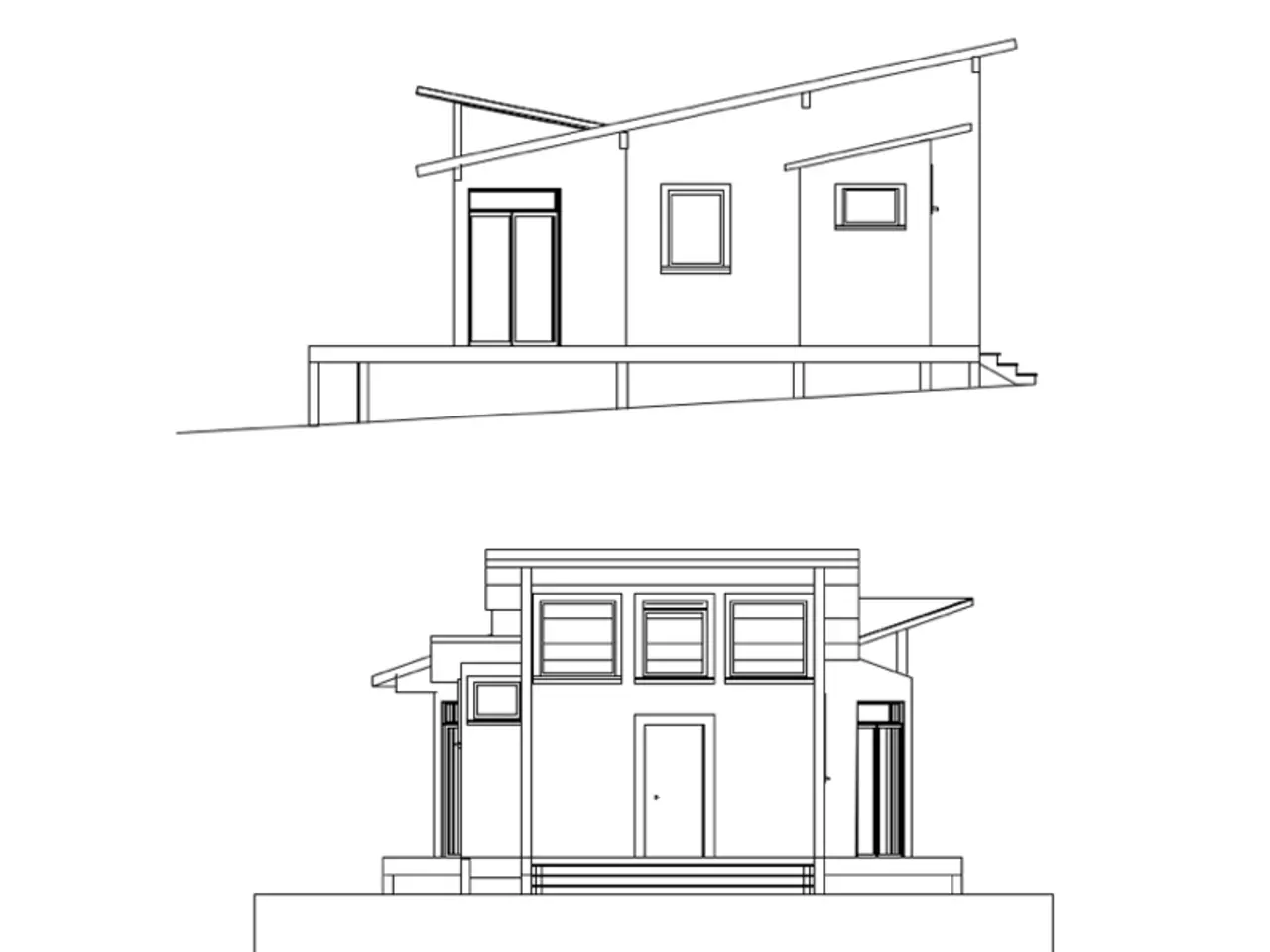Construction of New Apartments Gains Momentum in Germany, Yet Remains Lackluster Compared to Previous Years
New apartment construction permits on the upswing continues unabated - Building permit approvals for residential construction remain on an upward trend.
Get ready to see more cranes in the sky, but don't expect a boom just yet. The growth in building permits for new apartments in Germany, at a modest 4.9% increase in April and a 3.7% rise for the early year period, follows a steep decline in 2023 and 2024 [2][3]. However, despite this upward trend, the number of issued permits for residential units is still falling well short of what's required to address the housing shortage [1].
Sebastian Dullien, the scientific director of the Institute for Macroeconomics and Cycle Research (IMK) at the Hans-Boeckler Foundation, paints an optimistic picture. He believes Germany has likely passed the trough in housing construction, and it's all thanks to recovering purchasing power among citizens and more favorable financing conditions [1]. But, don't count on a construction explosion anytime soon. Dullien warns it will take some time before we witness a significant increase in construction activity [1].
One concern raised by experts is the housing market itself. The current increase in building permits accounts for less than 250,000 new apartments per year. To bring true relief to the housing market, about 350,000 new apartments will be needed over an extended period [1].
"Unfortunately, this trend doesn't mean relief for the housing market just yet," Dullien cautions [1]. "The current building permits merely represent a drop in the bucket."
Tim-Oliver Müller from the Association of the Construction Industry agrees, stating that even at this slow pace, the government's positive initiatives hold promise for a turnaround [1].
Although an improvement, building permits and completed dwellings are significantly below the level needed to satisfy demand. In fact, the number of newly completed dwellings dropped by 14.4% in 2024, amounting to around 251,937 units—the first significant decrease after steady completion numbers in recent years [5].
Germany continues to grapple with a serious housing shortage that government measures, so far, have not fully rectified [2]. Experts urge the weak pace in building permits to change if Germany wants to alleviate its ongoing housing shortage in the foreseeable future [2].
To combat the housing crisis, the German government is trying to streamline construction regulations and give municipalities more control over land-use planning to boost new construction, conversions, and extensions [2]. Unfortunately, despite falling interest rates and increasing incomes drawing some buyers back, affordability remains challenging as house prices continue their rise [1].
In essence:
- Building permit issuance is improving slowly in 2025, with a 4.9% increase in April and a 3.7% rise for the early year period, but remains significantly below the level needed to meet demand.
- Germany has a pressing housing shortage, with tens of thousands of new apartments required to ease the tight market conditions.
- The government is seeking to hasten construction, but housing affordability and economic uncertainties remain hurdles.
As the trend improves, the pace of new apartment construction needs to pick up substantially to meet the projected requirements and tackle Germany's long-standing housing shortage [1][2][5].
- In order to address the ongoing housing shortage in Germany, it's crucial to increase the pace of new apartment construction beyond the current rate of building permit issuance.
- To ensure the success of vocational training initiatives in the construction industry, financial investments in real-estate development should be encouraged, thereby fostering skilled workforce growth and contributing to the resolution of the housing crisis.








